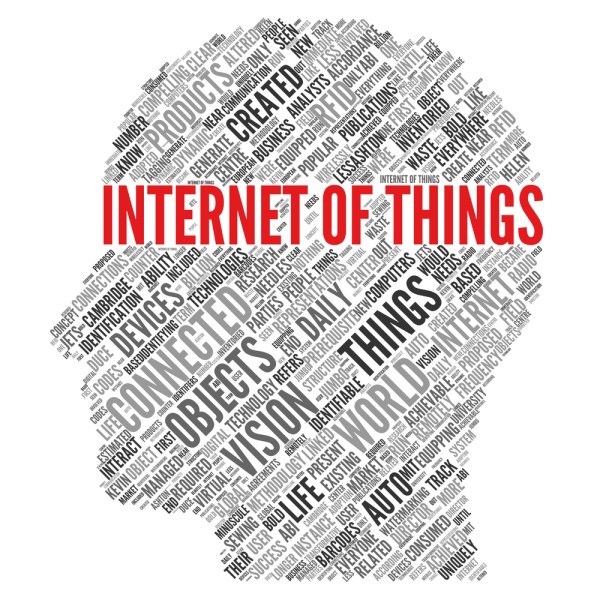VentureBeat: It lowers costs, basically, if you plan for it.
Ogawa: Right. If you plan for it, you have lower costs.
VentureBeat: The situation now is probably something like “Let’s make everything connected if it makes sense, because we know if we connect it, we’ll have to add these costs in.” You need a good reason to connect that washing machine if you have to throw in these extra costs.
Ogawa: Right. That’s the first step. Just bluntly, I think the jury is still out. There’s not always that home run compelling reason to connect something that hasn’t been connected before.
June 5th: The AI Audit in NYC
Join us next week in NYC to engage with top executive leaders, delving into strategies for auditing AI models to ensure fairness, optimal performance, and ethical compliance across diverse organizations. Secure your attendance for this exclusive invite-only event.
VentureBeat: As far as what you perceive in the marketplace, what’s doing well? What kinds of things are selling? What kind of things don’t make sense yet? Where is the success in IoT?
Ogawa: When you look at the successes, they tend to provide some level of insight into what you’re doing, some analytics. A fitness tracker is a great example. You wear a relatively inexpensive sensor on your body. It gathers information like location and heart rate. That data goes into the cloud and you’re presented with some analysis of your physical activity. Often it’ll make you some recommendations.

Above: IoT will connect all things.
VentureBeat: I see some business models where they’ll let you see a week or a few weeks of your data, but if you want to have it permanently stored, you have to pay a subscription.
Ogawa: Right, right. Or they might refer you to a running coach or some other performance-enhancing service. There are absolutely proofs that that makes money.
VentureBeat: But you can’t necessarily ask people to pay $10 for security, or just leave it wide open for free.
Ogawa: Yeah, exactly. That doesn’t work. I don’t know about you, but my parents would just say, “Screw it, I’m not going to connect at all!”
It’s compelling, if you’re into sports, to get some analysis as an upsell. With something like Strava, for example, you can pay a little bit extra to have that. Those business opportunities exist. In our space, going back to things like the washing machine, I think maintenance is ripe for that. There are other things like proximity detection. Being able to personalize a lot more. A lot of these capabilities are available now, where you can buy a smart device that’s secure in conjunction with some cloud capability.
VentureBeat: Some people will ask why you’re advocating security if it might stop us from getting to our trillion chips by 2035 or whatever.
Ogawa: I look at it a bit differently. It’s inevitable that these billions of devices will happen. You can look at the trajectory of the PC and see history repeating itself. These things were interesting, but when they got connected, that’s when it really took off. The same thing will happen here. The mantra has to be “secure by design.” When those billions of devices go out and they’re so fragmented, users are going to expect a privacy experience that’s consistent across the things in their home.
VentureBeat: Are there any other interesting points that this discussion leads to?
Ogawa: If you do believe that it’s going to happen — our belief is that cost of ownership is a critical friction point that has to get addressed in terms of these solutions that support privacy. For us at Cypress, we try to attack that as a key benefit to our customers. We’re paying attention to cost of ownership as much as whether we have the right crypto and the right microcontroller and so forth, with an eye toward that eventuality that these things are going to be everywhere and they’ll all need to be secure.
VentureBeat: What does Cypress sell that’s most directly relevant on this front?
Ogawa: We sell microcontrollers, and in particular we sell a type of microcontroller called the secure microcontroller unit (MCU). We call it PSoC, programmable system-on-chip (SoC). Not only do they present an MCU that’s programmable, but they also contain a security coprocessor that enables hardware-based security. Fundamentally what that means is being able to host a secret identity that you would use to identify your hardware. It also provides secure processing around that identity, to be able to authenticate it to a network, and also authenticates applications that are running on it.
VentureBeat: Are these SoCs pretty tiny now?
Ogawa: Oh, yeah. They’re super tiny. We’re down to being able to fit into 68-pin packages. They fit in watches. One of our signature designs is a biometric sensor that’s in the form factor of a wedding band. It’s a ring that detects your heart rate, temperature, and some other things, and it gives you feedback on how well you slept the previous day, and how you’re doing versus the activity you exert during the day. We provide the Bluetooth connection for that, as well as the host processing. We’re able to enable seven days of battery life and 30 days of data storage, as well as extended battery life.
VentureBeat: Are you looking forward to these being used in the internet-connected toilet seats at CES?
Ogawa: [Laughs] Well, commercially, yeah, come one come all. Personally, I don’t know if anyone needs to know that much about me, to tell the truth. I was talking to one of our customers in Japan that does make those fancy toilets, though, and they really are connecting them.
All kidding aside, in that space we see, for commercial deployment, use cases around consumable replenishment. Soap dispensers, paper towel dispensers, and so forth. We have a couple of designs where they’re being tracked and you can deploy someone to refill them. That’s a labor efficiency play. You don’t have to have a guy constantly bird-dogging it. You do the work on demand based on what the sensor tells you.

